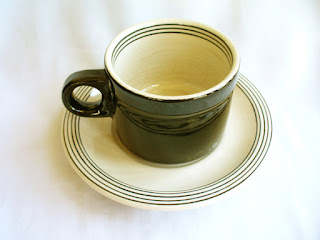It's Meet the Blogger Monday! This month I have the pleasure of hosting Ceil Ryan, of
Surrounded by the Spirit. This lovely writer and I met through blogging, of course, and if there's one thing I've noted about her, it's that she has a genuine heart for others. Her wise and often witty posts always seem to address a need or offer an encouraging word - or both.
Welcome, Ceil! So glad to have you visit. Why did you start blogging? How
long have you had your current blog?
Hi Karen! Thank you so much for including
me in your Meet the Blogger Series. I have enjoyed reading about the other
bloggers you’ve featured, and I’m honored to be here!
In 2012, I finished writing four
chapters of a book on the Parable of the Talents. Then I figured it was time to investigate how
to get published. Well, that was an eye-opener. I found out I needed: an
advanced degree, publications, a speaking career, a blog and a Twitter account
before I would even be allowed to submit a manuscript. Yikes. Getting published
sounded impossible. I quit writing the book (which was a good move because it
was terrible) and started my first blog, Evangelize to Me, in 2013 on the Google
Blogger platform. The next year I migrated the blog to Wordpress, changing the
name to Surrounded by the Spirit.
The publishing process can be a complicated one, that's for sure. Maybe a revised version of that book will find a home someday. :) What is your current blog about?
I reflect on the events of my
life, or the lives of those around me, trying to figure out what God is trying
to say. God constantly speaks through our friends, our families, our day-to-
day chores, and us. And He keeps speaking, whether we are listening or not,
telling us the love story of how we belong to Him and to all created things.
His spirit surrounds us!
I agree. That's a great comfort. What benefits have you gained
through blogging?
I started blogging to learn how
to express myself, and to find focus. I think that’s all I expected, but I’ve
gotten so much more than that. There’s such a large world of bloggers out
there, all expressing what’s important to them. It’s fascinating to read
different posts and learn new things, and new ways of thinking. But most of
all, I love the relationships that form with fellow bloggers. I have had the
privilege of meeting two blog-friends face to face, and it was like meeting old
friends. Blog-land is big, but it’s also one of the friendliest, most
encouraging places I’ve ever been.
The relationships are the best! "Blog-land" is big and small, isn't it? That's fun that you've met two other bloggers so far. What projects are you working on now?
I’m currently writing two talks
that are planned for the spring. One is a half-day retreat, the other a
one-hour presentation, both for women. I
was recently asked if I’d like to speak at a Ministry Conference breakout
session in April.
Sounds interesting - I'm sure you'll be a blessing to those attending. What might people be surprised to
learn about you?
1) I don’t like pie, unless it’s
chocolate or pecan. Please, for the love of all that’s holy, stop putting fruit
in my dessert!
2) Although I started out writing
a book, I don’t think that’s something I should be doing now. I’m very happy
writing for the blog, as well as designing talks and mini-retreats.
There are so many good things writers can do other than write books. Sounds like you are keeping busy. What advice would you share with
a newbie blogger?
Be gentle with yourself. When I
started, I think I had a headache every day. It’s overwhelming at first, but
you’ll get it. Take the time to read other blogs and comment on them too. To
me, blogging is not only about developing your own
voice; it’s about encouraging others while they find theirs. You’ll meet some
wonderful people and make good blog friends too.
Wonderful advice! It's an interesting journey with ups and downs, and the results are totally worth it. Thanks so much for coming by to see us. :)
Thank you, Karen!
More About Ceil
Ceil Ryan is a wife, nurse, mom
and nana living in the Midwest. After working more than twenty years, she hung
up her nurse’s cap to start writing, speaking and blogging full-time. Her
passion is sharing personal stories with an emphasis on faith and encouragement.
Do you have any questions for Ceil? Have you visited her blog? What are you working on so far in the new year?
Happy writing,
Karen
Photo credit: Free Images





